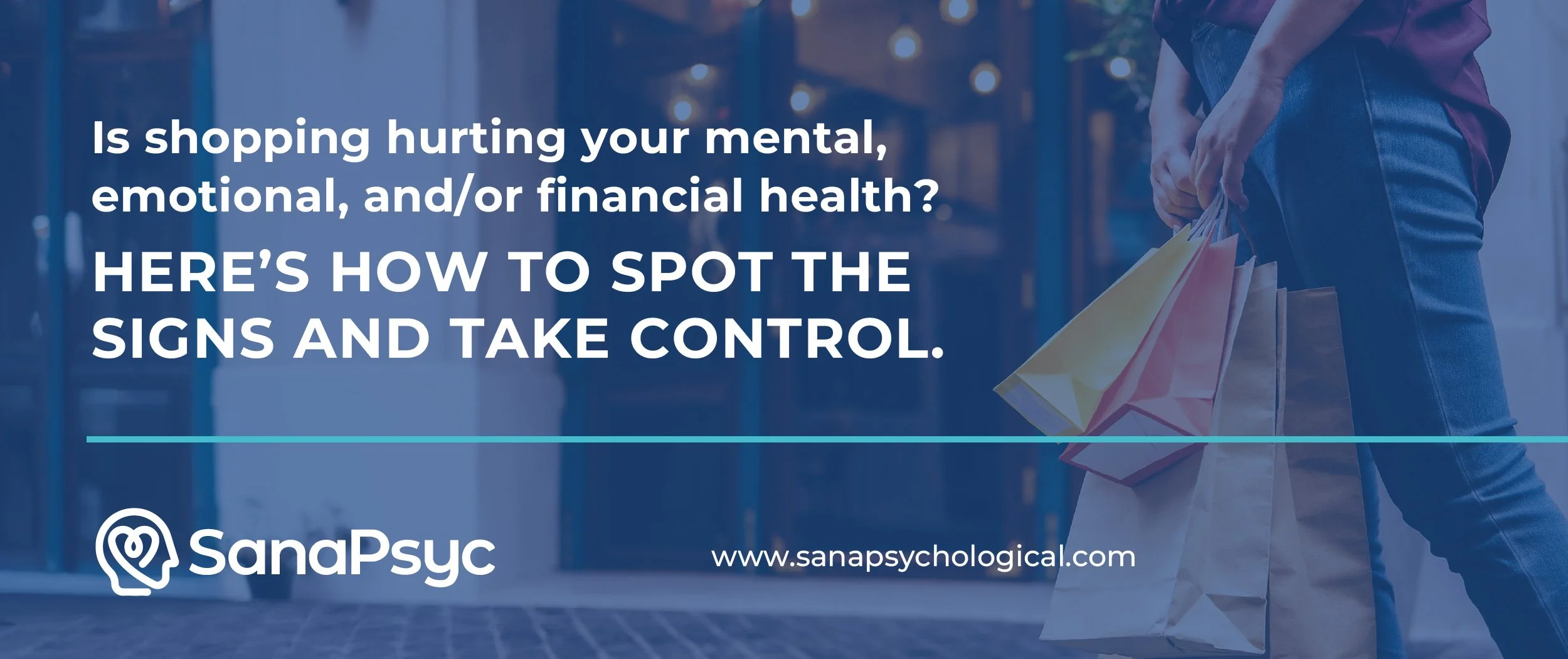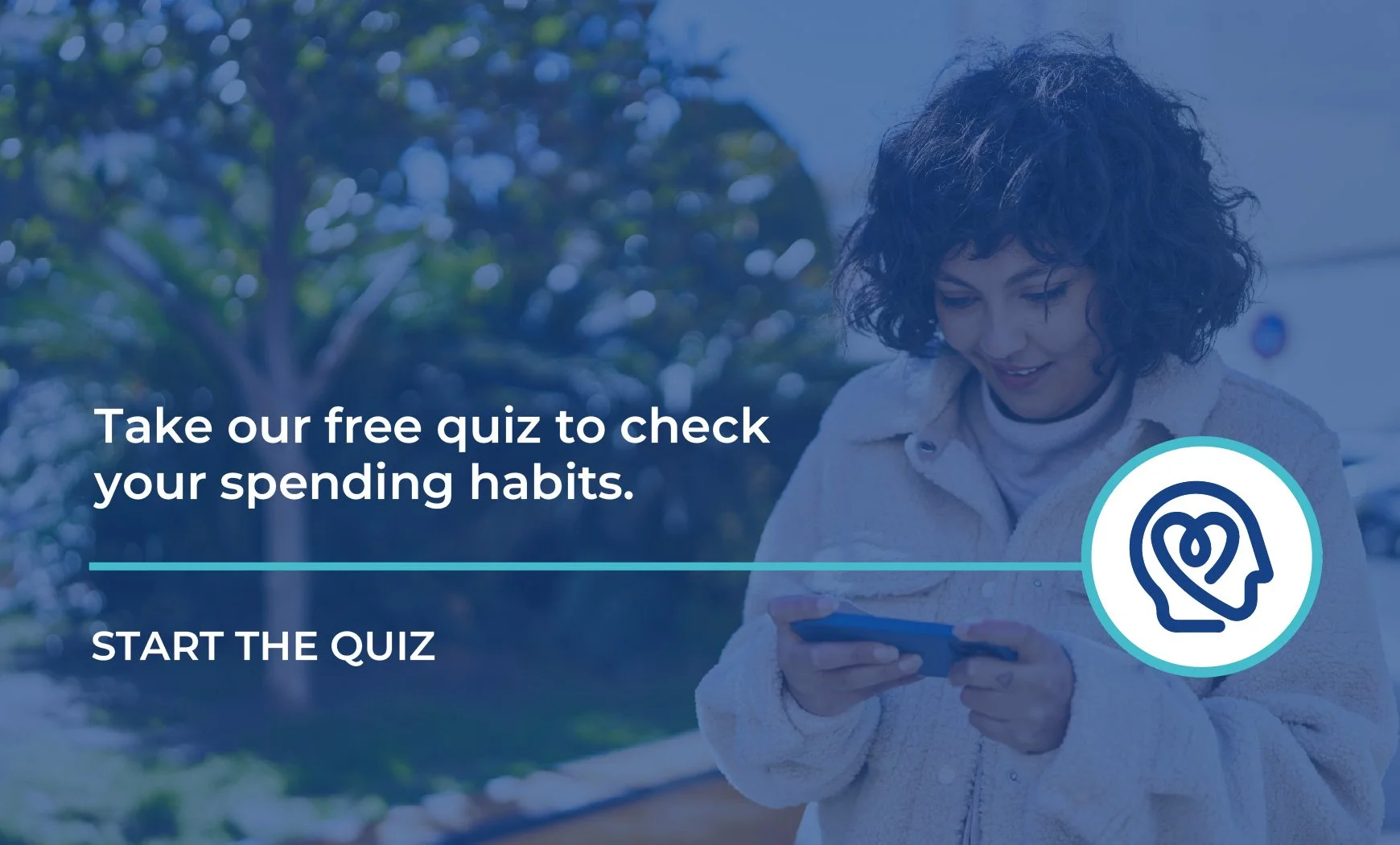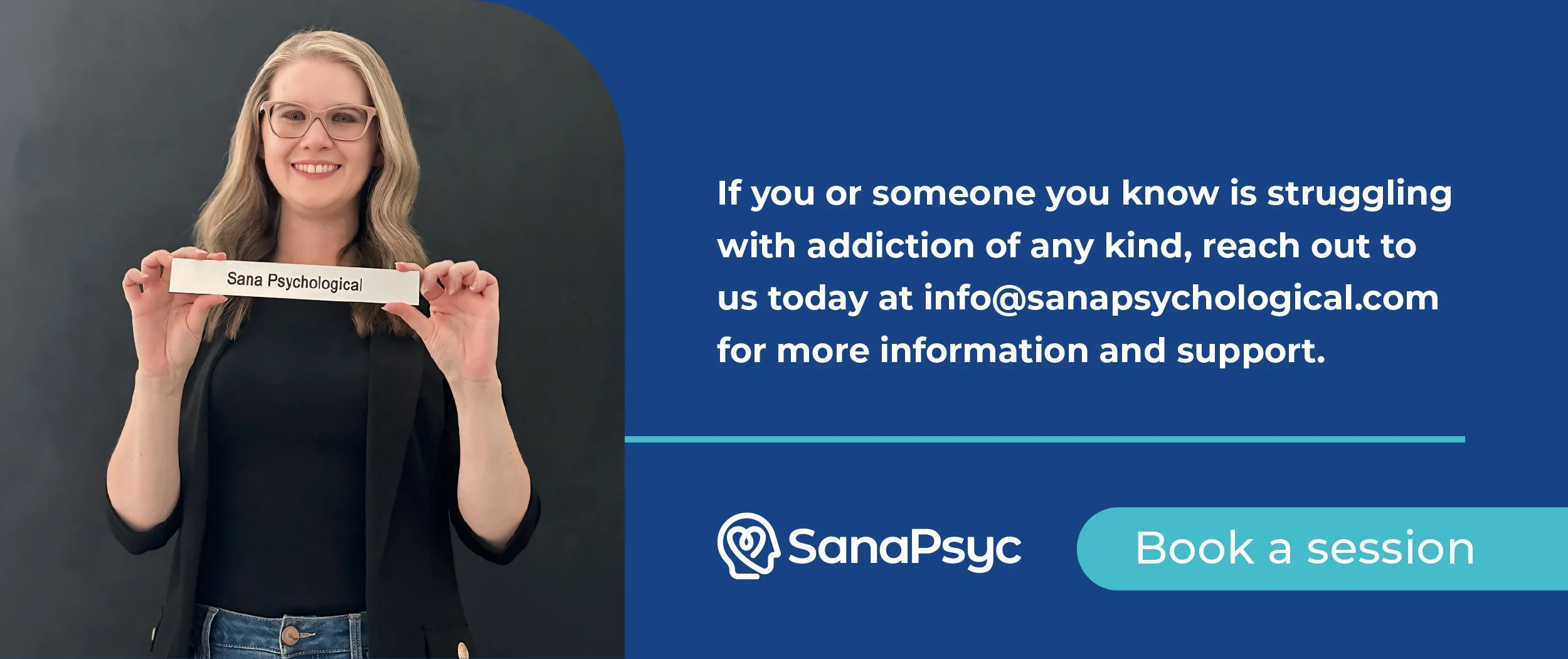Retail Therapy vs. Spending Addiction from Calgary Addiction Counselling Experts
We’ve all done it. A rough day, a stressful week, and suddenly the glow of your screen or a trip to the mall feels like the answer. A little "treat yourself" moment can be harmless—maybe even helpful. But what happens when the occasional pick-me-up turns into compulsive buying?
In this blog, our experienced addiction counselling Calgary therapists explore the difference between retail therapy and spending addiction and how to recognize when your shopping habits might be taking a toll on your mental, emotional, and/or financial health. In this digital age, access to online shopping has increased and led to increased access to this type of addictive behaviour.
Retail Therapy Defined by Addiction Counselling Calgary Therapists
Retail therapy is the act of shopping with the intention of improving your mood and/or coping with negative emotions. It is often temporary and intentional and directly related to one’s current circumstances and situation. Maybe you just had a fight with a partner or a difficult day at school and feel like ‘blowing off steam’ at the mall or online shopping would help. Think of it as a form of emotional self-care—grabbing a latte and buying a new journal after a tough week or picking out something special after reaching a milestone.
Signs It’s Just Retail Therapy From Calgary Addiction Calgary Therapists
You shop occasionally and intentionally.
It may or may not be connected to your mood and emotions. If it is, it is still thoughtful and intentional.
Purchases are within your budget.
Purchases are typically moderate and meant to provide soothing and self-care.
You feel a short-term mood boost but no lingering guilt.
You don’t hide your purchases or feel the need to justify them.
You can stop, pull back, and moderate as needed.
Many people engage in retail therapy for some coping and distraction from time to time. So when does it cross the line into spending addiction?
Spending Addiction Defined by Addiction Counselling Calgary Therapists
Addiction is driven by the structure of our brains and is when we engage in something to the point that it becomes harmful and cannot be controlled, even when the person wants to make changes.
Looking for additional resources to learn more about addiction? Here is a great resource bank of books, apps, websites and downloadable material to help you along the way. This resource bank is curated and regularly updated by experienced addiction counselling Calgary psychologists.
Spending addiction (or Compulsive Buying Disorder) is a specific manifestation of addiction and may appear in isolation or in connection with other addictive behaviours, including alcohol or drug use, gambling, sex addiction, codependency, eating issues, and more. Spending addiction is where shopping becomes a compulsive and uncontrollable behaviour. It may be there to avoid anxiety, depression, low self-esteem, or stress at first but, over time, it becomes the norm regardless of feelings or what else is happening in life. Unfortunately the way that businesses have set up their advertising and marketing makes this easy-to-access behaviour potentially more addictive.
Signs of Spending Addiction from Addiction Counselling Calgary Therapists
You shop impulsively and frequently, even when you don’t need or want anything.
You experience guilt, shame, or financial stress after spending.
You hide purchases from others or lie about your spending.
Your shopping habits are causing financial, emotional, or other types of strain in your life
Shopping feels like a way to cope with deeper emotional pain and/or find reward when things are already going well
You've tried to stop or moderate—but can’t.
While retail therapy provides a temporary emotional lift, spending addiction can trap you in a cycle of regret and financial instability. Over time, spending addiction offers less benefits and more harm, as with any type of addictive behaviour. Here are some other indicators of spending addiction.
Coping vs. Escaping: Addiction Counselling Calgary Therapist’s Perspectives
Retail therapy is about coping with stress or rewarding yourself. It is a conscious choice, intentional, within limits, and often used as a short-term emotional boost.
Spending addiction is about escape. It numbs emotional pain temporarily—but at a cost. The “high” can be followed by guilt, shame, anxiety, or depression, creating a damaging loop that’s hard to break. These feelings tend to build up over time as the loop is clearer and harms start to accumulate. While initially the behaviour may seem harmless, over time the damage becomes more evident. The harms may not always be financial for people, especially those with plentiful resources, but may be found more in the cost of time, relationships, regret, and/or emotional.
To help start to separate retail therapy from spending addiction, our addiction counselling Calgary therapists encourage you to ask yourself:
Am I in control of my spending?
Do I feel worse after shopping?
Am I spending more than I can afford?
Do I shop to avoid something else in my life?
If you are answering “yes” to these, it may be time to further assess the extent of your relationship with shopping and spending. Here is additional information about shopping addiction signs and where it comes from.
Free Self-Check Quiz From Addiction Counselling Calgary Therapists
Here is your opportunity: Take 5 minutes to do our free self-check quiz: Has My Retail Therapy Become Spending Addiction?
While this quiz is not a replacement for professional assessment, it is a good way to start to determine if you are at or have crossed the line into a more problematic relationship with spending and shopping.
If your answers show this, you may want to consider seeking out professional addiction counselling Calgary (or in your area).
Steps for Change: Suggestions from Addiction Counselling Calgary Therapists
If you are concerned that you may be moving into spending addiction rather than occasional retail therapy, here are some action steps that you can take to support yourself and promote healthy change. Our addiction counselling Calgary psychologists suggest:
Prioritize daily self-care and use other healthy strategies to keep stress lower for you..
Deal with feelings and stress rather than avoid them. This back-up of emotional energy can lead to more intense cravings for spending that may be difficult to stop.
Create a budget and track your spending for accountability.
Pause before purchasing. Wait 24 hours to see if you still want the item.
Unsubscribe from marketing emails and remove shopping apps if they’re a temptation.
Clarify your goals. The clearer you are on what you would like to be different, the more you can build a plan of action to execute.
Write out the harms and consequences from spending and shopping. This can help clarify your motivation and why you want to pursue change.
Seek support—from friends, therapists, or support groups like Debtors Anonymous or Spenders Anonymous.
If you or someone you know is struggling with shopping addiction, or addiction of any kind, reach out to us today at info@sanapsychological.com for more information and support. Visit us at https://sanapsychological.com/ to learn more about our mental health and addiction recovery support options.
Sana Psychological is a private practice in Calgary, Alberta, Canada providing quality mental health and addiction counselling support. Our therapists specialize in many areas of health, including anxiety counselling Calgary, OCD counselling Calgary, trauma counselling Calgary, addiction counselling Calgary, ADHD counselling Calgary, trauma counselling Calgary, and more. Connect with our curated list of resources to help you get started or complement your mental health journey.



